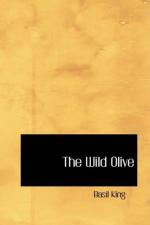She spoke breathlessly, in whispers, and, having finished, slipped away.
“You’re awfully good,” he whispered back. “Won’t you tell me your name?”
“Hush!” she warned him, as she closed the door.
He stood still in the darkness, leaving his food untasted, listening to the soft rustle of her movements beyond the wall. Except that he heard no more voices, the afternoon passed like the morning. At the end of what seemed to him interminable hours he knew by acute attention that she hung her apron on its peg, put on her hat, and took up her basket, while Micmac rose and shook himself. Presently she closed the door of the cabin and locked it on the outside. He fancied he could almost hear her step as she sped over the grass and into the forest. Only then did the tension of his nerves relax, as, dropping to his chair in the darkness, he began to eat.
IV
The two or three days that followed were much like the first. Each morning she came early, bringing him food, and such articles of clothing as she thought he could wear. By degrees she provided him with a complete change of raiment, and though the fit was tolerable, they laughed together at the transformation produced in him. It was the first time he had seen her smile, and even in the obscurity of the inner room where she still kept him secluded he noted the vividness with which her habitually grave features lighted up. Micmac, too, became friendly, inferring with the instinct of his race that Ford was an object to be guarded.
“No one would know you now,” the girl declared, surveying him with satisfaction.
“Were these things all your father’s?” he asked, with a new attempt to penetrate the mystery of her personality.
“Yes,” she returned, absently, continuing her inspection of him. “They were sent to me, and I kept them. I never knew why I did; but I suppose it was—for this.”
“He must have been a tall man?” Ford hazarded, again.
“Yes, he must have been,” she returned, unwarily. Then, feeling that the admission required some explanation, she added, with a touch of embarrassment, “I never saw him—not that I can remember.”
“Then he died a long time ago?”
Her reply came reluctantly, after some delay:
“Not so very long—about four years ago now.”
“And yet you hadn’t seen him since you were a child?”
“There were reasons. We mustn’t talk. Some one may pass and hear us.”
He could see that her hurry in finishing the small tasks she had come in to perform for him arose not so much from precaution as from a desire to escape from this particular subject.
“I suppose you could tell me his name?” he persisted.
Her hands moved deftly, producing order among the things he had left in confusion, but she remained silent. It was a silence in which he recognized an element of protest though he ignored it.




